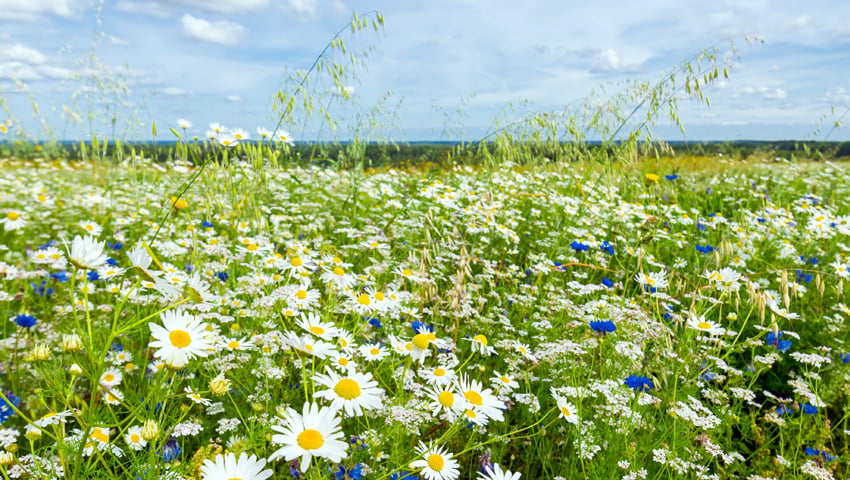Pelican Ag is a venture capital company that specialises in scaling regenerative agriculture and rebalancing food supply chains to improve ecological and nutritional outcomes.
The company has invested in businesses working to support farmers and other land managers in the regenerative agriculture space, including Nofence, Miraterra, MAD Capital and FA Bio.
8.9ha’s editor-in-chief, ffinlo Costain, spoke to Simon Evill, a Founding Partner at Pelican Ag, for an 8.9 TV interview released today.
Evill explained, “Venture capital is a very specific form of finance intended to fund an extremely high-risk company that also has a high potential.
“It typically funds early stage innovations and very young companies, with a handful of people involved in them who need quite a substantial amount of capital to fund them through to profitability and further growth.
“There are different types of venture investors that focus on particular stages of company, particular innovations and particular geographies.”
He said that despite the high risk associated with venture capital investments, they were attractive because of the potential for very high returns.
Evill said, “Generally speaking venture investors are looking for companies that can return the portfolio – so if they invest in 10 or 20, 30 or 40 companies, then depending upon the risk position that they’ve taken, the stakes that they’ve taken, and how they’ve allocated the capital […] you can double or quadruple down into the companies that are doing well within your portfolio.
“There’s a play book, if you like, and various strategies that venture investors use to try and achieve higher returns – but the capital is locked up for a considerable period of time, typically speaking between five and ten years, sometimes longer.
“It’s an asset class, but it’s one of many, and in the investment world generally speaking, venture is a tiny slice of people’s investment portfolios, but if fulfils a role because it’s there to back innovations within the economy.”
Regenerative mindset
Evill says that venture capital can help scale regenerative farming indirectly.
He said, “Regenerative agriculture in and of itself, is a movement of farmers and actors within the supply chain and other people involved in food and farming. It’s a movement of changing management practices – and on a deeper level it’s a mindset shift in the way that human beings approach land management and their relationship with nature.
“Up until fairly recently we’ve developed technology with a reductionist mindset; technology for addressing symptoms and making our lives easier in every aspect of our economy and food and farming has been no different. Synthetic agriculture, chemical fertilisers, pesticides, fungicide, large tractors, ploughage and tillage equipment fall into that category.
“We are now entering a different phase where humans have the potential to develop technology for regenerative outcomes – technology which lends itself to people and communities and individual farmers and land stewards, managing land towards ecosystem health and better profits and a more healthy rural community. That’s what we’re trying to tap into – that’s what we’re trying to invest into – the technologies but help that.”
Miraterra
Pelican Ag’s most recent investment is in Miraterra, a Canadian soil lab analysis technology.
Evill said, “It’s a raman spectroscopy device, a high-powered resolution device that looks at soils that are coming into the lab for analysis and is able to perform a rapid set of analyses, which are being done in a fairly analogue and human intensive way at the moment.
“So it’s offering a potential step change in the way that soil labs analyse and process soils that are coming into their laboratory, and we think that that is going to be very important for speeding up, for example, how soil health is done at scale across the world.”
Nofence
Pelican Ag was also an early investor in Nofence. Evill said, “Yes, that was our second investment. We’ve taken a bullish view on the potential with rotational and managed grazing. It might be a marginal part of the livestock industry, but it’s growing very rapidly.
“[Rotational grazing] started many years ago, but it has trade-offs, and it’s a labour-intensive operation, particularly moving mobile fences around landscapes. So depending upon a farmer’s set-up, depending upon your hedgerows or your perimeter fence, there are many cases in which using a virtual fence – which is what Nofence have developed – is hugely advantageous.
“One area where it’s very, very helpful is grazing through woodlands, where it’s just totally impractical, and in some cases you’re not allowed to put fencing in there and you wouldn’t want to put fencing in there anyway because it’s a habitat that you want wild animals to access.
“Nofence is one of the leading virtual fencing companies in the world and we see huge potential in that as a tool to help farmers who are already on a path to rotational or more advanced regenerative strategies.”
Simon Evill’s softly spoken enthusiasm for his sector is contagious and Pelican Ag are already an important player in the regen technology market. The company’s ambition is to play an even greater role in supporting the global regenerative transition – a transformation upon which humanity’s future security depends.
